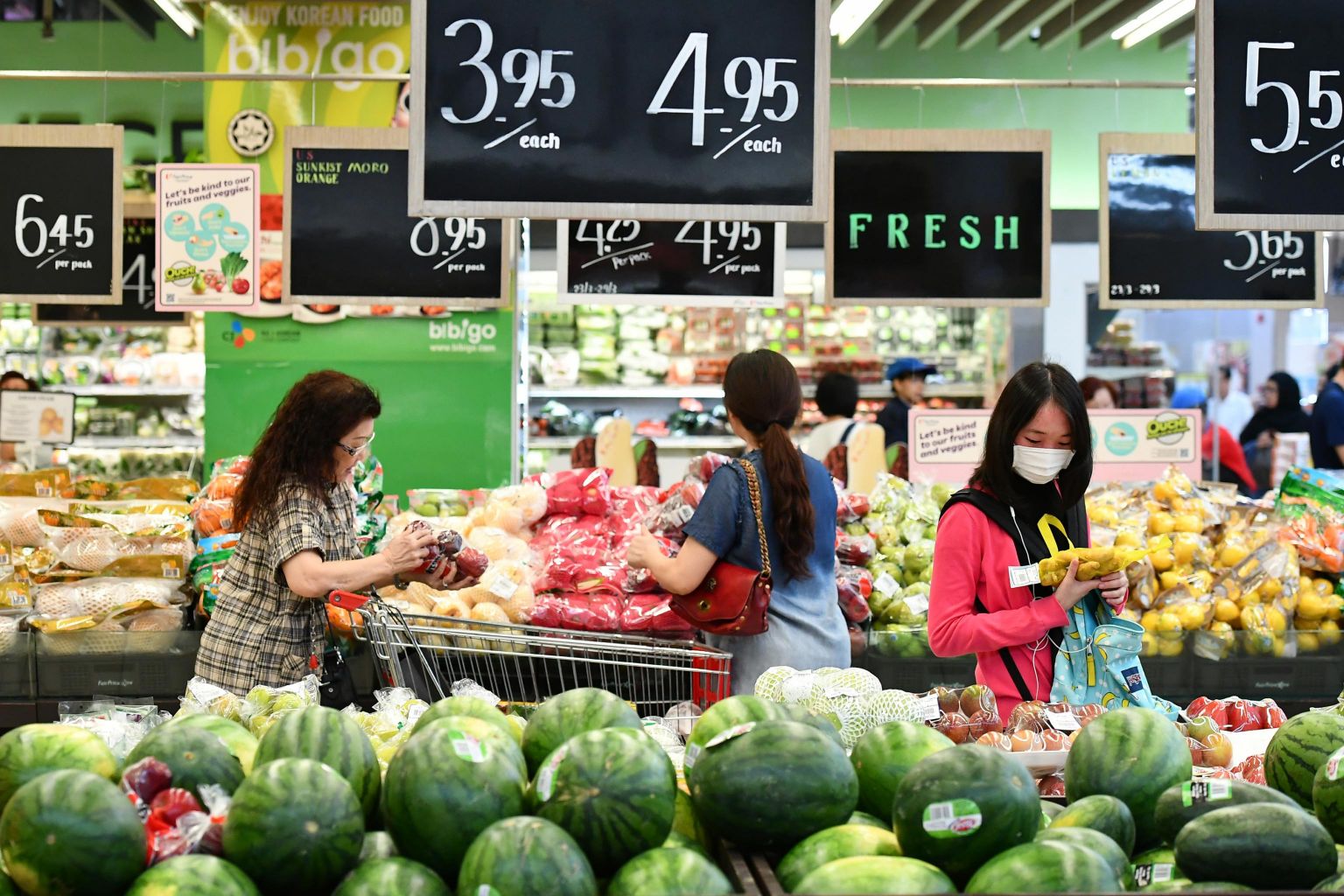National Day Rally 2018: PM Lee Hsien Loong gives 4 reasons why people feel cost-of-living pressures
Sign up now: Get ST's newsletters delivered to your inbox

Customers at the fruits section at FairPrice Xtra supermarket in NEX on March 23, 2017.
PHOTO: ST FILE
Follow topic:
SINGAPORE - Singaporeans today, compared with their forefathers, have better lives, with access to world-class education, affordable and high-quality healthcare, and a high rate of home ownership, said Prime Minister Lee Hsien Loong on Sunday (Aug 19).
But they still feel cost of living pressures, he noted in his National Day Rally speech in Mandarin, which focused largely on the issue.
Acknowledging their worries, he said: "They sense that they have to spend more, that their earnings never seem quite enough."
He gave four reasons Singaporeans feel this way, and pledged the Government will do its part to ease their concerns.
But people need to do their part, too, he said, urging them to adopt some lifestyle changes to ease the squeeze on their wallets.
The reasons for feeling financially pressured vary, he noted.
For young families, they pay close attention to the costs of housing and pre-school education as they are buying their first property and planning to have children.
The sandwiched generation, looking after both their children and ageing parents, is concerned with healthcare and education costs.
A third reason is cost of living has risen as a result of changing lifestyles.
Pointing to the quality of life improving with economic growth and technological progress, Mr Lee said people eat out more and vacations have become more common.
Things that were once considered luxury items or did not even exist, such as air-conditioners and mobile phones, have also become daily necessities, he added.
"Our standards of living have gone up. This is a positive development, because it means our lives have improved. However, to sustain this higher quality of life, people are spending more than before, and this can put pressure on households," he said.
The fourth reason is inflation, which has led to price increases.
Mr Lee highlighted four groups who may feel the pinch more: Those whose wages have stagnated amid an overall rise in wages, those who fear losing their jobs as the economy transforms, those who are already jobless, and retirees who no longer have income and are living off their savings.
"When prices increase, they feel as if 'their wallets have shrunk'," he said.
While cost of living is a perennial concern, the issue has gained traction in recent months with increases in water and electricity prices kicking in.
Mr Lee assured Singaporeans the Government looks closely at the three major expenditure items - housing, healthcare and education - that people worry most about.
"We will make sure (they) are affordable, so that Singaporeans do not have to worry about them," he added.
He also urged Singaporeans to do their part by making small changes - "save water, save electricity, and at the same time, shop around for the best prices, and be a smart consumer".
Specifically, he cited mobile phones, infant milk formula and hawker centres to give tips on how people can save on phone bills, bringing up their children and food.
With mobile phones and an Internet connection becoming necessities, especially as Singapore moves to become a Smart Nation, Mr Lee said, telecommunication bills are bound to grow.
Phone bills were typically about $8 a month when people had just one landline at home. Now, they can go up to hundreds of dollars.
Suggesting how people can reduce their phone bills, Mr Lee said they should watch their data usage by using the Wi-Fi network at home to download movies into their mobile phone, instead of using the 4G data network when outside, or using the free Wireless@SG network available at some public places.
On parents with babies, Mr Lee said formula makers have taken advantage of people's desire to give their children the best, to market premium brands aggressively and mislead parents into thinking that expensive formula must be better.
This is the reason the Government set up a task force last year to address the problem in various ways, such as bringing in more brands and parallel imports, tightening regulations for labelling of formula milk, and educating parents, he added.
Said Mr Lee: "When I was an infant, there were no such expensive brands of infant milk formula, yet my generation still grew up healthily. So I believe the next generation will not have a problem."
On food, Mr Lee said eating out typically costs more than cooking at home, and pushes up the cost of living.
To ensure there are affordable options, the Government has built more hawker centres, and will continue to do so. In the last few years, it has built seven new hawker centres, and 13 more are being built.
It will also require stalls at these hawker centres to provide economical meal options priced at $3 or less.
"In other words, when we tender out the hawker centres, we do not assess bids on their tender price alone, but also on whether the operators can offer affordable options," he said.
He added: "While the Government will do its part to alleviate people's cost of living concerns, each of us also has a responsibility to 'look after our own wallets'."

